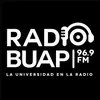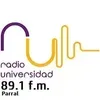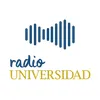Radio universidad Live Radio Stations
Radio Stations
- Radio Anáhuac (Huixquilucan) - 1670 AM - XEANAH-AM - Universidad Anáhuac - Huixquilucan, EM

- Radio Anáhuac (Huixquilucan) - 1670 AM - XEANAH-AM - Universidad Anáhuac - Huixquilucan, Estado de México

- Radio Anáhuac (Huixquilucan) - 1670 AM - XEANAH-AM - Universidad Anáhuac - Huixquilucan, Estado de MéxicoRadio Anáhuac (Huixquilucan) - 1670 AM - XEANAH-AM...
- Radio BUAP (Puebla) - 96.9 FM - XHBUAP-FM - Benemérita Universidad Autónoma de Puebla (BUAP) - Puebla, PU

- Radio Chapingo - 1130 AM - XECHAP-AM - Universidad Autónoma Chapingo - Chapingo, Estado de México

- Radio IPN (Ciudad de México) - 95.7 FM - XHIPN-FM - IPN (Instituto Politécnico Nacional) - Ciudad de México

- Radio Tecnológico de Saltillo - 100.1 FM - XHINS-FM - Instituto Tecnológico de Saltillo - Saltillo, CO

- Radio UAdeO (Los Mochis) - 89.3 FM - XHUDO-FM - Universidad Autónoma de Occidente - Los Mochis, Sinaloa

- Radio UNAM (Ciudad de México) - 860 AM - XEUN-AM - UNAM (Universidad Nacional Autónoma de México) - Ciudad de México

- Radio UNAM (Ciudad de México) - 96.1 FM - XEUN-FM - UNAM (Universidad Nacional Autónoma de México) - Ciudad de México

- Radio UNAM AM (Ciudad de México) - 860 AM - XEUN-AM - UNAM (Universidad Autónoma de México) - Ciudad de MéxicoRadio UNAM AM (Ciudad de México) - 860 AM - XEUN-A...
- Radio UNAM FM (Ciudad de México) - 96.1 FM - XEUN-FM - UNAM (Universidad Autónoma de México) - Ciudad de México

- Radio Universidad

- Radio Universidad (Hermosillo) - 107.5 FM - XHUSH-FM - Universidad de Sonora - Hermosillo, SO

- Radio Universidad (UAA) (Aguascalientes) - 94.5 FM - XHUAA-FM - UAA (Universidad Autónoma de Aguascalientes) - Aguascalientes, AguascalientesRadio Universidad (UAA) (Aguascalientes) - 94.5 FM...
- Radio Universidad (UACH) (Parral) - 89.1 FM - XHPEFK-FM - UACH (Universidad Autónoma de Chihuahua) - Parral, CH

- Radio Universidad (UADY) (Mérida) - XHRUY-FM / XERUY-AM -103.9 FM / 1120 AM - Universidad Autónoma de Yucatán - Mérida, YU

- Radio Universidad (UASLP) - 88.5 FM - XHUSP-FM - UASLP (Universidad Autónoma de San Luis Potosí) - San Luis Potosí, SL

- Radio Universidad (UASLP) (San Luis Potosí) - 88.5 FM - XHUSP-FM - UASLP (Universidad Autónoma de San Luis Potosí) - San Luis Potosí, SLRadio Universidad (UASLP) (San Luis Potosí) - 88.5...
- Radio Universidad de Oaxaca (UABJO) (Oaxaca) - 1400 AM - XEUBJ-AM - UABJO (Universidad Autónoma Benito Juárez de Oaxaca) - Oaxaca, Oaxaca

- Radio UV (Xalapa) - 90.5 FM - XHRUV-FM - UV (Universidad Veracruzana) - Xalapa, VE

- UAM Radio (Ciudad de México) - 94.1 FM - XHUAM-FM - UAM (Universidad Autónoma Metropolitana) - Ciudad de México

- UN Radio Bogotá (HJUN 98.5 MHz FM) Universidad Nacional de ColombiaUN Radio Bogotá (HJUN 98.5 MHz FM) Universidad Nac...
- Universidad Stereo (UASLP) (Matehuala) - 91.9 FM - XHUASM-FM - UASLP (Universidad Autónoma de San Luis Potosí) - Matehuala, San Luis Potosí

Choose a Genre
Exploring the Unique World of Radio Universidad Stations
Radio Universidad, as a genre of radio station, is intrinsically linked to educational institutions, particularly universities. These stations provide a platform for the exchange of knowledge, ideas, and cultural appreciation, making them a vital part of the global media landscape. Found in many countries around the world, Radio Universidad stations offer a unique blend of academic, cultural, and community-focused content.
A Hub for Educational Content
At the heart of Radio Universidad stations is their commitment to education. These stations are not merely a source of entertainment, but rather, they act as a venue for academic growth. Programming often includes lectures, interviews with experts, and discussions that dive deep into subjects such as history, science, literature, and the arts. Such content is designed to ignite curiosity, foster intellectual discussions, and provide listeners with opportunities to expand their knowledge beyond the classroom. The educational nature of Radio Universidad is an essential tool for promoting lifelong learning and intellectual engagement.
Cultural Programming that Bridges Gaps
Beyond the lecture halls and academic discussions, Radio Universidad stations also place a strong emphasis on cultural programming. These stations serve as a medium for showcasing music, theater, film, and other forms of cultural expression. This programming helps to promote a greater understanding and appreciation of diverse cultures and traditions. By highlighting local, regional, and international cultural events, Radio Universidad stations provide audiences with a rich cultural experience, often introducing them to new artistic movements or voices they may not have encountered elsewhere.
Fostering Community Engagement
One of the most distinctive features of Radio Universidad stations is their focus on community engagement. These stations are often deeply embedded within the local fabric of the communities they serve, offering a platform for local voices and grassroots initiatives. Many Radio Universidad stations feature call-in shows, interviews with community leaders, and forums where listeners can interact with the content in real time. This fosters a sense of participation and inclusion, as individuals can engage with important local issues or share their own perspectives on societal matters.
Independent and Non-commercial Voice
Radio Universidad stations are often independent and non-commercial, giving them a unique advantage: editorial freedom. Without the constraints typically imposed by commercial interests, these stations are free to explore topics that might be overlooked or sidelined by mainstream media outlets. This independence is especially significant in regions where media outlets face governmental restrictions or censorship, as these stations provide an essential outlet for free thought and open discourse. In many countries, Radio Universidad stations are one of the few spaces where voices critical of the status quo can be heard.
Embracing Language Diversity
As educational institutions cater to a diverse student body, Radio Universidad stations often mirror this linguistic diversity. Many of these stations broadcast in multiple languages, reflecting the multicultural nature of their audiences. By offering programming in different languages, these stations not only ensure accessibility to a wider range of listeners but also promote cross-cultural understanding. Language diversity helps listeners appreciate the nuances of various cultures while providing educational content to those who may not speak the station's primary language.
Conclusion
In conclusion, Radio Universidad stations are a vital part of the media ecosystem, particularly for those interested in educational, cultural, and community-centered programming. Their commitment to providing intellectual content, promoting diverse cultures, and fostering open dialogue makes them indispensable in many parts of the world. Whether through academic lectures, cultural showcases, or community forums, Radio Universidad continues to play an essential role in enriching societies and promoting a deeper understanding of the world around us.
Radio Universidad, as a genre of radio station, is intrinsically linked to educational institutions, particularly universities. These stations provide a platform for the exchange of knowledge, ideas, and cultural appreciation, making them a vital part of the global media landscape. Found in many countries around the world, Radio Universidad stations offer a unique blend of academic, cultural, and community-focused content.
A Hub for Educational Content
At the heart of Radio Universidad stations is their commitment to education. These stations are not merely a source of entertainment, but rather, they act as a venue for academic growth. Programming often includes lectures, interviews with experts, and discussions that dive deep into subjects such as history, science, literature, and the arts. Such content is designed to ignite curiosity, foster intellectual discussions, and provide listeners with opportunities to expand their knowledge beyond the classroom. The educational nature of Radio Universidad is an essential tool for promoting lifelong learning and intellectual engagement.
Cultural Programming that Bridges Gaps
Beyond the lecture halls and academic discussions, Radio Universidad stations also place a strong emphasis on cultural programming. These stations serve as a medium for showcasing music, theater, film, and other forms of cultural expression. This programming helps to promote a greater understanding and appreciation of diverse cultures and traditions. By highlighting local, regional, and international cultural events, Radio Universidad stations provide audiences with a rich cultural experience, often introducing them to new artistic movements or voices they may not have encountered elsewhere.
Fostering Community Engagement
One of the most distinctive features of Radio Universidad stations is their focus on community engagement. These stations are often deeply embedded within the local fabric of the communities they serve, offering a platform for local voices and grassroots initiatives. Many Radio Universidad stations feature call-in shows, interviews with community leaders, and forums where listeners can interact with the content in real time. This fosters a sense of participation and inclusion, as individuals can engage with important local issues or share their own perspectives on societal matters.
Independent and Non-commercial Voice
Radio Universidad stations are often independent and non-commercial, giving them a unique advantage: editorial freedom. Without the constraints typically imposed by commercial interests, these stations are free to explore topics that might be overlooked or sidelined by mainstream media outlets. This independence is especially significant in regions where media outlets face governmental restrictions or censorship, as these stations provide an essential outlet for free thought and open discourse. In many countries, Radio Universidad stations are one of the few spaces where voices critical of the status quo can be heard.
Embracing Language Diversity
As educational institutions cater to a diverse student body, Radio Universidad stations often mirror this linguistic diversity. Many of these stations broadcast in multiple languages, reflecting the multicultural nature of their audiences. By offering programming in different languages, these stations not only ensure accessibility to a wider range of listeners but also promote cross-cultural understanding. Language diversity helps listeners appreciate the nuances of various cultures while providing educational content to those who may not speak the station's primary language.
Conclusion
In conclusion, Radio Universidad stations are a vital part of the media ecosystem, particularly for those interested in educational, cultural, and community-centered programming. Their commitment to providing intellectual content, promoting diverse cultures, and fostering open dialogue makes them indispensable in many parts of the world. Whether through academic lectures, cultural showcases, or community forums, Radio Universidad continues to play an essential role in enriching societies and promoting a deeper understanding of the world around us.